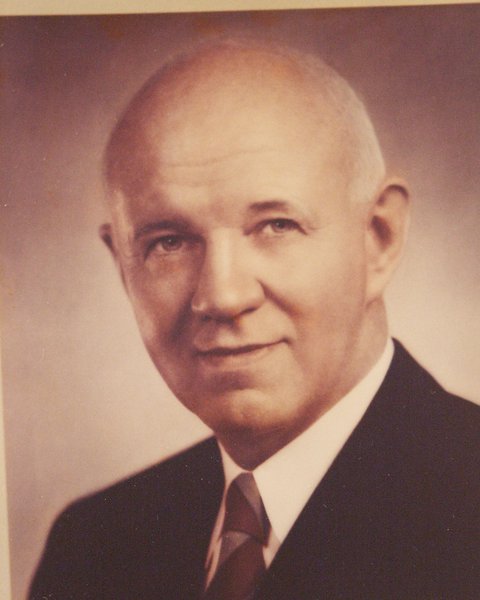
Class I
Romeo E. Short
Romeo E. Short was born in Illinois, but was raised in Iowa. He graduated from the teachers college in Cedar Falls and then left for Canada where he began farming wheat. World War I interrupted his farming career when he enlisted in the services as a private and ended his armed services career as a first lieutenant. After the war, he settled in Arkansas and began farming in Lee County. He and his wife Darlene had one son, Romeo Jr. The farming operation in Lee County included rice, cotton and livestock on about 2,600 acres. Mr. Short was a pioneer in the practice of irrigating cotton, thus averaging a bale of cotton to the acre. He was also one of the first rice growers to harvest his crop with selfpropelled combines. As an avid supporter of agricultural unity, he worked hard to help the newly reactivated Farm Bureau succeed. He saw the need for farmers to work together, pointing out that all farmers are mutual, regardless of the area in which they lived, the commodity they raised, or the size and nature of their operations. After the unexpected death of the Mr. Tompkins, the state president, Mr. Short was elected as the second president at the first Arkansas convention in Little Rock in November of 1936. He served as the state president until 1948. On the national level he gained great respect for his wisdom in agriculture matters. This led to his being elected in 1947 as the vice-president of the American Farm Bureau Federation. His position as board member and vice-president required a considerable amount of time in Washington D. C. where he used his expertise on farm affairs to be a witness before congressional committees and in policy discussion conferences at the Department of Agriculture. Mr. Short was recognized throughout the state, nation, and world for his expertise of and dedication to farming interests. President Eisenhower appointed Mr. Short to serve on a fourteen-man committee to advise the President on problems regarding agriculture. This eventually led to his appointment as Assistant Secretary of Agriculture under USDA Secretary Ezra Taft Benson. He served for most of the year in 1953, but later resigned for health reasons.
